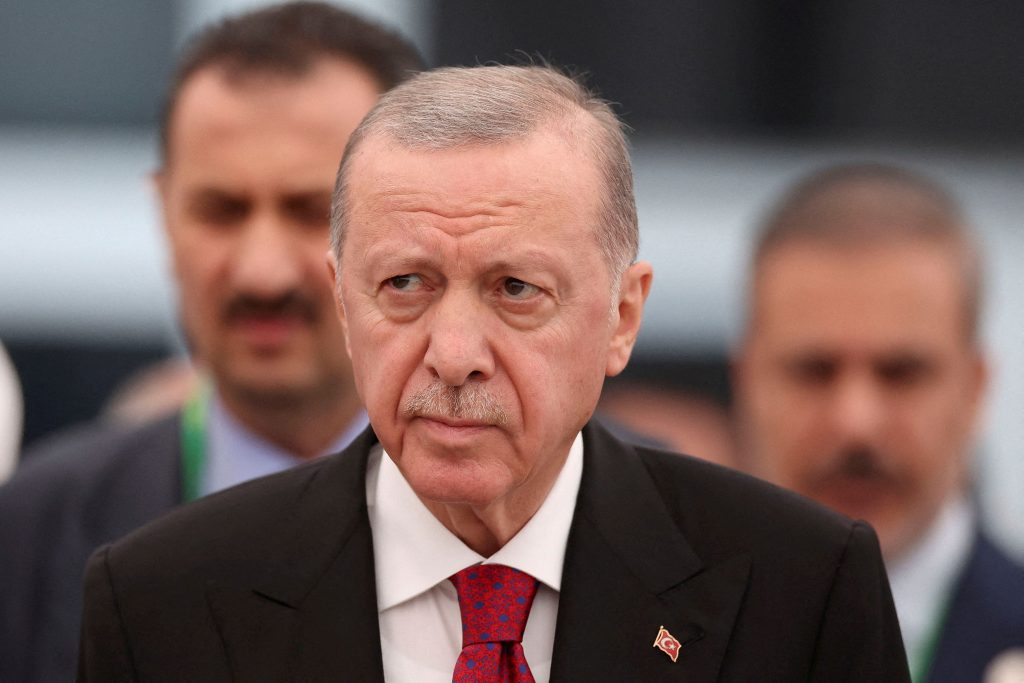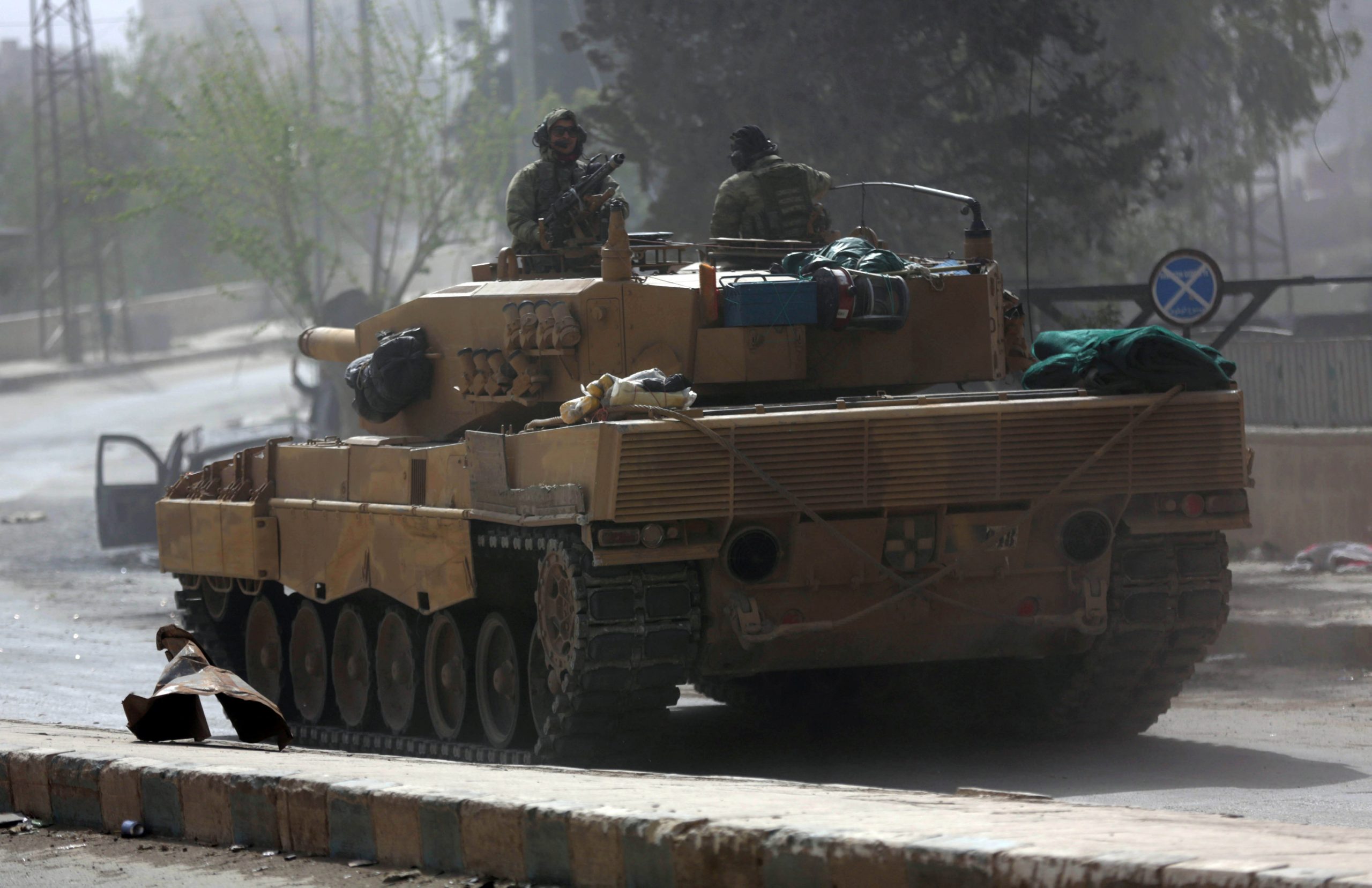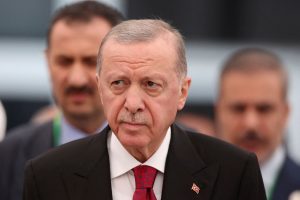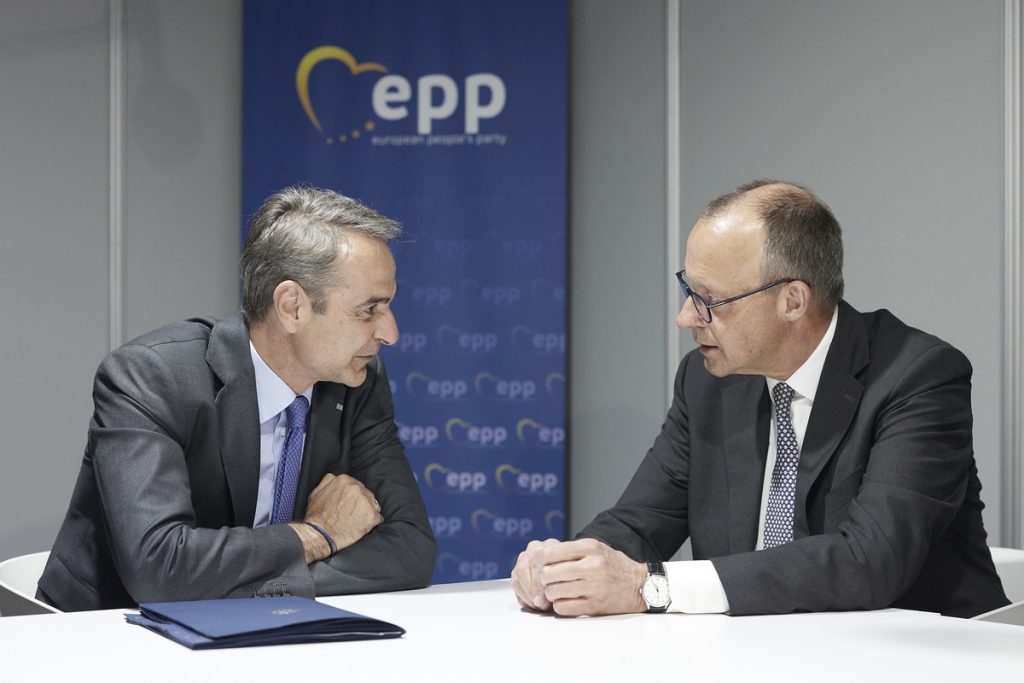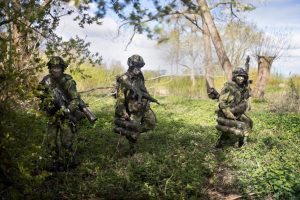Turkish forces are gathering on the border of Syria and an attack on the border zone controlled by Kurdish forces appears imminent.
Ankara has sent its message: it is preparing for an attack against the Kurdish People’s Protection Units (YPG) in northern Syria. It has also made no secret of its desire to have the area “cleared” of Kurdish forces before Donald Trump takes office.
The message from Turkish Foreign Minister Hakan Fidan was also clear on the same day from Damascus. After receiving a warm welcome from Abu Mohammed al-Jolani, leader of the former jihadist force that took power in Syria, Hayat Tahrir al-Sham (HTS), he declared that
“Turkey is ready to cooperate with the new Damascus government under one condition: the removal of YPG forces from the border.”
Turkish media, meanwhile, report that the Syrian National Army has assembled a force of 25,000 men, ready to attack Kurdish-controlled areas in northern and eastern Syria.
“The situation is not yet stable, nor safe in Syria. It is also not certain whether HTS will be able to transform into a moderate force, despite its assurances. We must support a stable Syria in the interest of the Middle East and the Eastern Mediterranean,” Ilhan Uzgel, a shadow foreign minister and vice president of the main opposition Republican People’s Party (CHP), told To Vima.
Can the Erdogan government claim to be vindicated by its policies in Syria, where it has secured a leading role in the post-Assad era?
“The Syrian people have suffered for the last 14 years. Assad was a dictator, but the situation in Syria is still not stable. Erdogan is trying to use the overthrow of the Assad regime for his personal agenda domestically and internationally. This is nothing new. Turkey has 900 km of border with Syria and has been heavily involved with the neighboring country since 2011.”
What does Ankara risk if it assumes a leading role in the developments in Syria?
“So far, HTS leader Jolani has been sending out moderate messages and some of his practices suggest a total change in his policies. However, we are well aware that the people leading the new phase in Syria come from a former jihadist organization and no one can feel secure about their future stance.
There are pressing issues that need to be addressed, such as ensuring stability, meeting the basic needs of the Syrian people (food, electricity, infrastructure, etc.), along with achieving control and sovereignty over the country. Will they succeed? The greatest danger for Syria, and consequently for Turkey, is that the country could descend into chaos. An unstable Syria is a great danger for Turkey. It may even trigger a new wave of refugees.”
Will the Kurdish factor be a point of friction between Ankara and Washington?
“The Kurdish Democratic Union Party (PYD) in Syria is considered a terrorist organization by Turkey, but not by the US. It has long been a point of contention between Ankara and Washington. Hence the intense negotiations between them. The US continues to support the Kurdish forces and the PYD, which Turkey opposes.”
However, is Ankara preparing an operation against the Kurdish People’s Protection Units (YPG) in order to create a buffer zone in northern Syria?
“Turkey considers the existence of a Kurdish entity as a threat to its territorial integrity. And a military operation is possible to create a security zone, 30 km deep, along the border.”
What are Erdogan’s broader goals in Syria?
“Syria definitely needs reconstruction, but Turkey cannot handle this sector alone, given the damage done to the country. Support from international organizations and the international community is essential to rebuild the damaged infrastructure.”
Is Ankara planning to declare a Turkish-Syrian EEZ that will exclude Cyprus?
“It is really too early to be discussing a Turkish-Syrian EEZ. It will most likely take time to materialize.”
